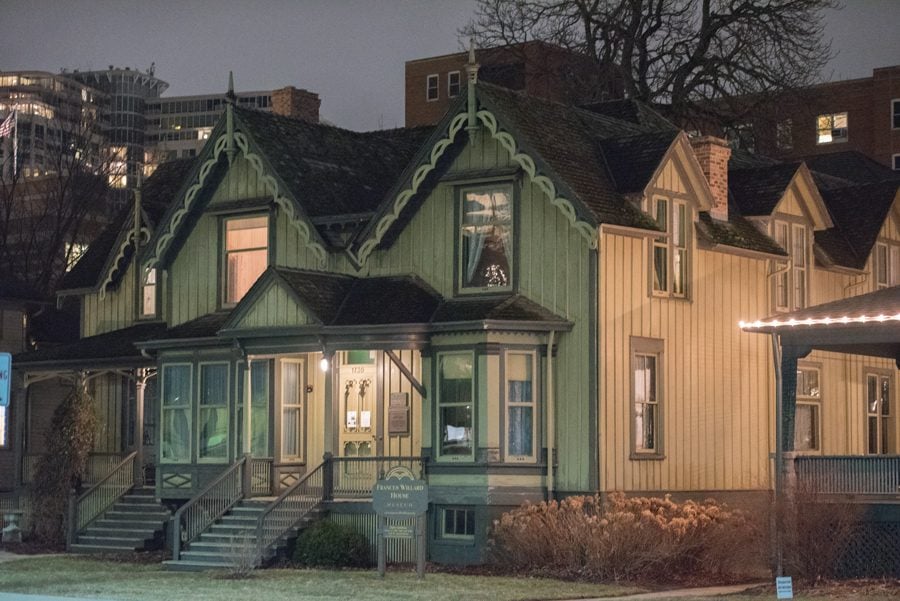A hundred years after ratification, Frances Willard’s legacy remains vital to the 19th Amendment
(Daily file photo by David Lee)
Frances Willard House, 1730 Chicago Ave. After retiring from Northwestern University, Frances Willard worked in Evanston and around the U.S. promoting temperance and women’s suffrage.
June 26, 2019
A hundred years ago this month, the passage of the 19th Amendment granted women nationwide the right to vote, with Illinois being among the first states to vote on the amendment’s ratification. The establishment of this right, however, was the result of a battle years in the making.
Frances Willard, after leaving her position as the dean of women at Northwestern University, dedicated herself to improving the lives of other female citizens by founding the Woman’s Christian Temperance Union — an organization that supported women gaining the right to vote in addition to the temperance movement.
Lori Osborne, the director of the Frances Willard House Museum, explained that the WCTU’s pursuit of suffrage was part of its larger goal of expanding the role of female voices in issues that impacted the lives of women.
“They felt that women brought a particular point of view and their voices were equally important and should be considered when governments and communities were making decisions,” Osborne said.
Unlike other women’s suffrage organizations, the WCTU viewed suffrage as a form of “Home Protection.” Willard argued that women needed the right to vote in order to protect families and children — a point that swayed many conservative women who were initially against the WCTU’s stance on suffrage.
Nonetheless, Willard’s approach to gaining the right to vote sometimes pitted the WCTU against other well-known organizations. At one point, Carrie Chapman Catt, president of the National American Women’s Suffrage Association, requested the WCTU cease participation in formal suffrage work.
Catt wrote in a letter that the WCTU’s efforts were viewed by men as “a strategic move to secure prohibition through women voters.” She thought this alienated men who favored suffrage but did not support prohibition. Willard was a staunch supporter of the national movement to ban alcohol, and was considered a leader of the cause.
Despite her years of work, Willard did not live to see the national amendment pass. After her death in 1898, the WCTU continued to promote both temperance and women’s suffrage, eventually succeeding with both the 18th and 19th Amendments, respectively.
However, following the repeal of the 18th Amendment, the WCTU and Willard’s reputations were tainted for many years.
“The WCTU and Willard along with it were considered almost as if they were a joke because of the entire movement to educate people about the problems that alcohol and other substances can cause for people,” Osborne said.
Today, the WCTU and the Frances Willard House Museum work toward preserving the legacy of Willard and her work on behalf of women, temperance and human rights.
Although the organization isn’t as active in national politics today, the WCTU and the Frances Willard House Museum continue to be involved in telling the stories of women.
“Women are involved in all sorts of political movements,” Osborne said. “We don’t take a side on the politics of each movement but we do recognize that these stories from the past can really help us understand and find our own voices on whatever issue is of importance to us today.
“It’s not as if these issues that Evanston was working on in the 19th century just disappeared entirely,” Osborne continued. “They just look they just look different because we’ve changed — our world has changed — but we know that there’s ways they’ve persisted into the 21st century, and so once again it’s important for women’s voices to be part of the conversation.”
Email: [email protected]
Twitter: @caty_buchaniec


